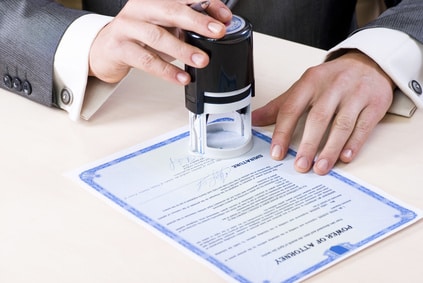Estate Planning Series Continued
Welcome to entry #3 of our estate planning series—Estate Planning 101.
If you will recall from Estate Planning 101, a Medical Power of Attorney is “used to designate an individual to make medical decisions on your behalf when you become incapacitated.”
Do They Know What You Want?
If you were incapacitated, who would you want to make your medical decisions for you? I bet that’s a tough one!
Do they know your religious beliefs? How about what conditions you would want the Doctor to cease providing medical care? Have you taken the steps to ensure that this person can legally make these decisions for you?
Pulling the Plug – Harder than you think
Many of you may have read the article recently where a young man was paralyzed after he fell from a tree stand while hunting.
Following his accident, the doctors informed the family that he would be paralyzed from the shoulders down, and may never breathe on his own again. A tough prognosis for such an athletic outdoorsman. Unfortunately, this young man had not planned for a scenario such as this.
Very unsure of how to handle the situation, the family chose to bring their loved one out of sedation and let him choose for himself. He made the decision just twenty four hours after his accident to forego any other life-sustaining treatment and to die in the presence of his loved ones.
Decisions concerning end-of life care and incapacity can be the most difficult decisions for anyone to make. Most often, these types of decisions are left to loved ones; and in so many situations these decisions tear families apart. Most people however, don’t want to discuss these topics, and don’t know where to start.
There is a solution.
The Medical Power of Attorney
A Medical Power of Attorney is a document signed by an individual, or “Principal,” that designates who will make almost all medical decisions concerning the end of life or life after incapacity. Once a person becomes incapacitated the power granted under the Medical Power of Attorney kicks in and the named agent is allowed to act on the Principal’s behalf.
Remember, this doesn’t just mean unresponsive or unconscious because someone can be incapacitated, or incompetent, and still be fully awake and communicating.
It is very important when deciding to designate someone as your agent under a Medical Power of Attorney to ask that persons permission. You don’t want them to be thrust into making difficult decisions that they never agreed to make.
Further, you want to choose someone you would trust with your life – because that’s exactly what is happening. Under Texas law, any person may be named as an agent except the principal’s health care provider, residential care provider, or their employees, unless they are a relative of the principal.
—See Tex. Health & Safety Code § 166.153
In most instances the person named is a spouse or other family member who knows the principal best.
It is also extremely important to discuss your wishes with that person. If you name an individual in a Medical Power of Attorney and never tell them what you want, you put them in a position of great power and burden and risk them making a decision you would never want to live with.
What Powers are Granted?
Generally, an agent named in a Medical Power of Attorney can make any decision for the principal that the principal could make for themselves if they were not incapacitated. However, before the Medical Power of Attorney becomes effective, the principal’s attending physician must certify in writing that the principal is incompetent.
An agent must then act, to the best of their ability, in accordance with the principal’s wishes and religious beliefs. The agent may not, however, consent to certain treatments such as convulsive treatment, psychosurgery or abortion.
Please note, however, if a principal objects to a treatment or the withholding of treatment, the principal’s wishes prevail regardless of the effectiveness of the Power of Attorney or the competence of the principal.
—See Tex. Health & Safety Code § 166.152
Is there an expiration date?
The Medical Power of Attorney is effective unless it is revoked by the principal or if the principal regains competency. Therefore, it can be revoked at any time by signing a new document or giving notice to the agent that the document has been revoked.
A Medical Power of Attorney may further be revoked by a divorce between the principal and named agent if they were married at the time of signing the document unless the Medical Power of Attorney states otherwise.
Get Started Now!
Statistics show that you are most likely going to become incapacitated before you actually die. Planning for your incapacitation is not difficult, nor is it even expensive, and it is something that you have to do now while you are healthy.
Give yourself some peace of mind, and give your family some peace of mind because they will have enough things to worry about when the time comes, and contact your Estate Planning Attorney to get your affairs in order.
–Authored by Kayla R. Wimberley, Esq.,
Matthew Harris Law, PLLC – Estate Administration Division
1001 Main Street, Suite 200, Lubbock, Texas, 79401-3309
Tel: (806) 702-4852 | Fax: (800) 985-9479

